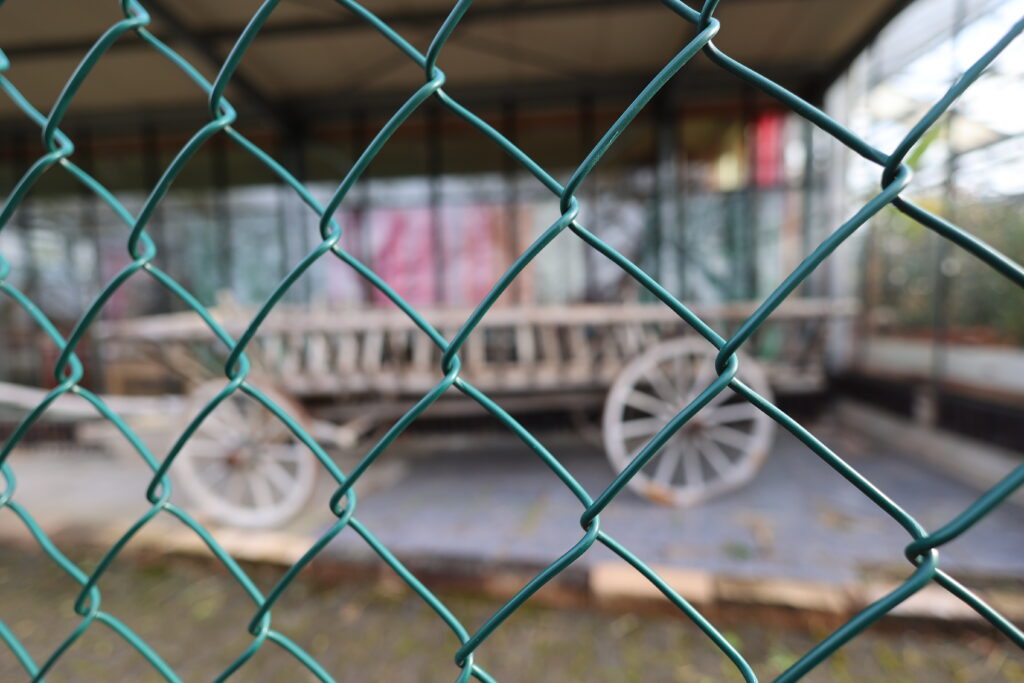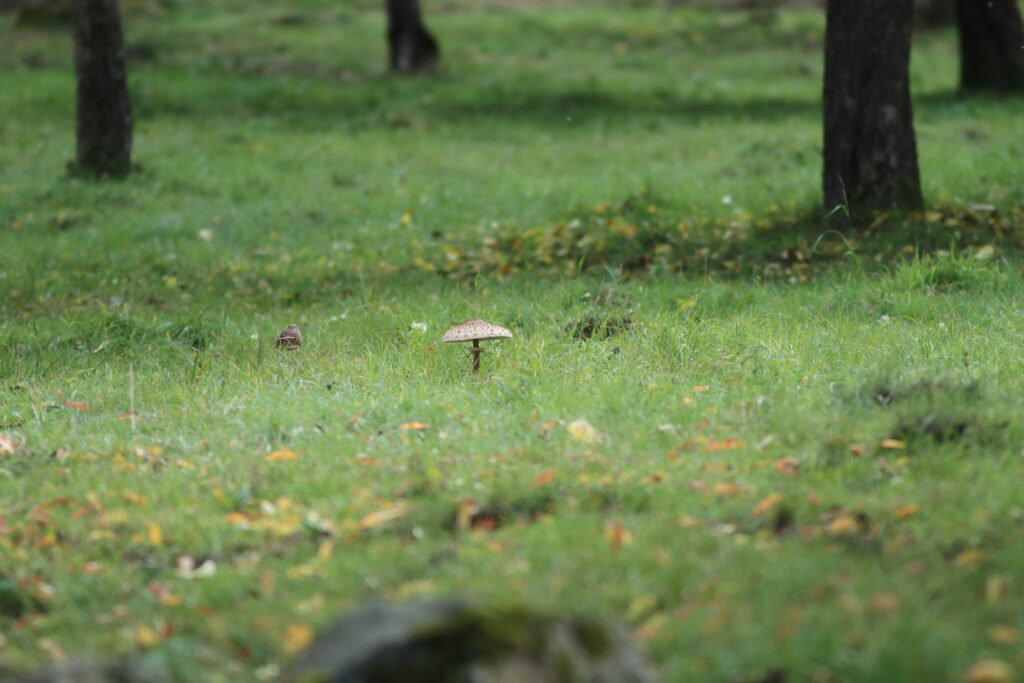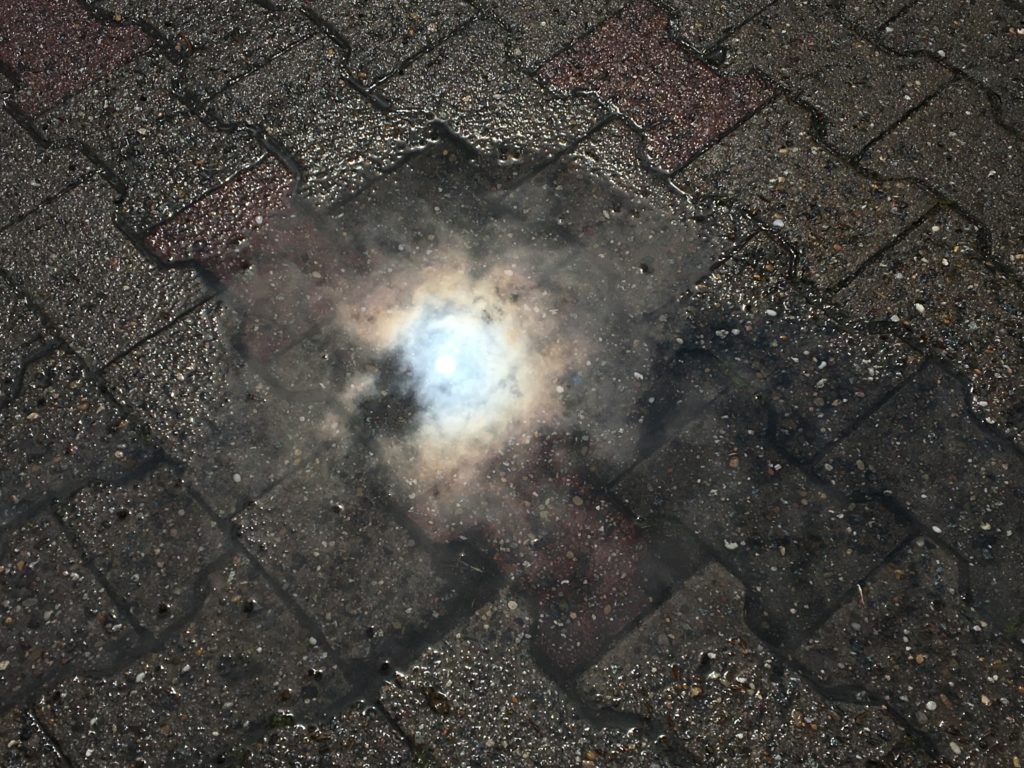If I would die today what would this mean to me? To my friends and family? Would they be ready? Would I be ready? Can somebody be ready to die just in the moment of this thought?
This post expresses the feelings and associations that come up with the thought of “If I would die today”. This has nothing directly to do with the topic of suicide.
Checklist
Of course, the first thing I do, when I ask myself whether I would be ready to die, is, that I am checking my inner virtual task list of things that I want to accomplish or where I think that I should accomplish them for whatever reason.
I have to say that based on this list, I would be ready. … And that’s probably because there is nothing on it where I would say that it makes me feel extremely sad if I didn’t have accomplished this certain thing. Maybe saying “I feel detached from this list” could be the correct expression? I certainly may feel actually sad if I couldn’t finish this list but I wouldn’t suffer from it. I would accept it.
Introverted Vs Extraverted Perception of Myself
Within the last two to three years I reflected a lot on what I want, what I feel, what I think and of course also on the input from the outside. This one I am trying to take more serious. If somebody says something to me that makes me feel hurt; what does this tell about me, them, our relationship and our histories? And it is of course not only if they say something to me, but also how they interact with each other. … Yes, I am in the observer mode. I guess that’s at least one gift I got together with my life and existence. However, sometimes we forget in the observer mode how powerful our interactions would be. We can ignite something within others that will enlighten the whole room but because we are in the observer mode this means we are not playing the game, we don’t attack, we don’t protect, but most important, we don’t interact.
Some people are way too far into the action mode. They learned their processes and act based on them and depending on the result they may differ their actions, or are just happy they got what they wanted. … They are great at creating external results. They don’t see all possible realities within their mind. They don’t need to because they will see how reality changes through their interactions and if it goes the right way it is fine, otherwise they adapt their actions.
You may noticed that I basically described introverted and extraverted personalities. Is one of them better? Depends on the context. Should each type learn something from the other one? Definitely!
Is What I Do Unique or a Repetition of History? Is It Worth It?
What I wanted to say is, for myself I would be fine if I died today. But I would also be fine if I didn’t. I am not a person who knows everything or claims to know everything. When you start to read a lot of philosophical texts and also texts of other types, you will notice that the systems or complexities that are described, are often the same but … and that’s the important part…. they are described not only in the the historical context but also in the context and experiences of the individual author. And what you read and understand is not necessarily what they meant or thought of when they wrote their texts. Depending on the affinity of the author, they will describe these systems in context of metaphors, mathematic or scientific expressions, music, art, literature. Take your own affinity and think about it. What forms your perception of reality and how would you express common known “facts” within this realm of reality? To make it even simpler. Maybe you have a favourite TV show or book or artist. Based on the realities that they are playing in, how would you describe the purpose of life? In contrast to the real life, in these fantasies you are allowed to state things as absolute truth, you can add rules to these words that make your statements true. It is funny how these fantasies allow an unlimited amount of creative extensions like adding the rule that it is possible for humans to breath under water but this creative extension does not mean it always must be an addition to our reality, tt can also be a subtraction, a simplification of life that makes it easier to understand a certain complex system.
Who Am I? Is My Environment Also Me? What Influence Do Our Actions Have on Others and the Future?
… maybe the question of whether I am ready to die …. Should actually be extended by the question of who am I? Is myself even dividable from the rest of reality? Who would I be if the rest of reality wouldn’t exist? Am I product of my environment or reality? Does this mean that even my inner dialog is an evolution of the interaction with the outside? Of course these questions go into the direction of the philosophical topic of “Constructivism”. Additionally, we are of course not only a product of our environment but also of our starting set of how we process the input and how sensitive our input calibration actually is, given by our body development. Together with epigenetic this can form our development and reality perception. Another question that arises whether a separation of us and others exists in a very strict way in our language. Maybe our language doesn’t allow the description of unity as we would require it to understand it completely. Which of course makes translations even more problematic. What we require is often a translation of meaning, not of words, and meaning is a subject of interpretation.
So, if we talk about whether I am ready to die …. Does this mean whether the author and main actor of their life is ready to die or whether this includes that the environment that received the author as their input is ready for him to stop creating new content?
You may saw that I avoided to write in the first person in the last paragraph. I took a step back from my ego and I joined you as the reader to observe me for who I am. An author that creates content, that processes input, refines it, uses it as additional input for other processing steps and so on.
When I die, I stop actively creating new content. But this doesn’t mean that my environment stops processing my input that I gave them on purpose or that they will receive when they go through my content that I created in the past mainly for myself. When they will see where I lived, they will not only notice these objects, and the common functionalities they come with, but everything also contains my presence in their awareness. It will be the bed where I slept, the table at which I worked, ate and wrote, the couch on which I enjoyed watching movies, and all the books I may enjoyed to read or not even touched once. They will see the wall of pictures that I have taken and it will create emotions within them. … So, … am I really just only me and my body? … If someone dies, they may be dead but they continue to live within us, we are their legacy.
What Brings You Inner Peace to Be Ready?
Again … am I ready to die?… Well, some of you who lost someone very close in the past and can still remember it, may noticed that at some point of time they had the thought “I want to tell my close ones how I feel about them, that I love them.” Or you may want to clarify a topic that you are carrying with you. You may start to ask yourself how you felt if you lost this other person today… what questions would stay open? How do we find inner peace in a world that confronts us everyday with something that we need to attack, protect, or flee from, or just survive. But maybe that comes from the misconception of inner peace. We think that this means there won’t be any conflict in us anymore but that’s wrong. We just learned to appreciate all kind of feelings and emotions, the dynamic of a conflict, a discussion. We don’t separate things anymore into good and bad but that everything is contained within a mix that’s not dividable. Life is like a spectrum and not a definite final collection of definitions. But to accept this, it means to accept that reality is more complex than we can describe it with words or other tools of expression. It means to accept that we can’t control everything in every possible way. The more we try to control things, the more we will notice that we can’t control everything which will stress us. Of course the other possibility would be to improve the skill of ignorance. Which means that everything we can’t control, we will find an explanation that simplifies reality in absurd ways (at least absurd to the outside world). If I state that one plus one is three and never will do any other calculation (means I ignore everything else), of course the statement will stay true and create confidence within myself that this must be the absolute truth.
Difference Between Being Ready For Dying, Dying, and Being Dead
… All the talk before was actually about how reality will change if I am already dead. It discusses the aftermath but also the things before I die. But what about the actual process of dying. Am I and my participating reality ready for this? Can we be ready for it? I mean … it is somehow a one time experience for myself. If I die, I can’t talk about it anymore afterwards. If I survived, have I really been in the process of dying or should it be called something different? Is a near-death experience the same as actually dying? … I think the main fear that comes with dying is that it is the final experience of something that we have not experienced before. … Does is take courage to die? I guess it depends on what we associate with courage and what’s the context of the process of dying.
I think the following statement is quite important in the trolley problem where questions are asked that indirectly imply to value or evaluate the life of others.
Maybe, but only maybe, the process of how we handle the deaths of others reflects on how we handle our own dying and living.
Societies Contribution to Death and Grief
Does your society actually grief? Means, supporting the people that are in grief and not giving them a deadline so that you are judged if you haven’t finished your emotions until then? At least in western culture you have often the phenomena of “overcoming grief”. Means that you are allowed to be shocked for a moment but then are expected to leave this event behind you and be a functional member of society again. Going to work again, telling others a story that avoids showing that you are still hurting, e.g. the person that died was already so old and lived a fulfilled life, or the suffering had finally an end, or I learned through this experience to value my own life more and so on. All of these are justifications to explain the death but it does not make you feel less hurt. We rationalise our feelings but we don’t integrate them. If we can’t find a justification for them, we are told to be a non-contributing part of society and that this is bad.
I guess discussing how emotions are generally handled in our society and media is whole other post.
You May Be Ready to Die but Is Your Environment Too?
The question of “Am I ready to die today?” maybe forgets to answer the question “Is my environment ready for me to die?”. To be honest, the second question may actually the more tricky one. It assumes that on the one side you are able to check this state on of your environment and on the other side that you are able to control or influence that. Is it your responsibility to check whether your environment is ready for you to die? If we talk about your friends or unloved parents, you may would say ‘no’ but what about the situation that you have children? Are you then responsible for it? What if you are a single parent? Does this mean you are attached to these things?
I think that we are not in control of our environment and how it will perceive our death. Additionally, it is not our part to process their grief for them. That’s something they only can do for themselves. We can try to support them, make them feel loved but also that they do not depend on us to have a fulfilled life. We are part of their journey. And yes, it hurts to lose someone which party you appreciated over your whole life. And yet, and one point you may realise we are not only the person that you see in our moment in death but we are a whole spectrum of experiences and memories that we shared with you and others.
What It Means to Be Alive
Once you realise that you feel all kind of emotions, you may also realise that you are really alive. Not only a body walking on this earth. And that may be something that every little death and loss in our life can make us appreciate.
To live means to learn and to be aware. If your surroundings don’t change anymore or … your perspective on them, are you still moving forward? To walk, means to fall forward, otherwise you will never move. So, changes keep us alive and death is one of them.
P.S.
I’m totally aware that this post can be polarising. You may feel reflected in it if you are in a grieving situation right now or you may feel the complete opposite because it does not reflect your experience and emotions. Others won’t even want to read it because it feels too emotionally overwhelming to even think about all the scenarios or they ain’t interested in it and don’t like to theorise this topic as it doesn’t bring them any value from their perspective. I understand and respect this.
So, for whom is this post? Mainly for me but also for everybody that feels like this is a topic they want to discuss or think more deeply about as it is a topic they can’t avoid in the longterm and this discussion or input may help them to be better prepared for upcoming situations in a rational and emotional way. I am not sure whether it would help someone who has suicidal thoughts. My assumption would be that this requires more like a one-on-one session where their explicit reality perception is reflected. That ain’t something a post can provide for multiple reasons.
Okay, okay, I know, writing about ‘intelligence’ can be easily taken the wrong way. Because the term is so often used in supremacy dreams of . . .
This post doesn’t explain the world. It doesn’t take into account attributes of the world and explains the logic around it, the patterns. This post . . .
This post is a continuation of “Faith and what it means in my world view”. It breaks faith up into sets of beliefs that in . . .
The Fabric of Reality Your chain of thoughts gets interrupted. Imagine you focus on a certain aspect of your reality right now. It may be . . .
Let’s play a game to learn more about your own line of thoughts and how you may can influence them. Fast Forward Association Game The . . .








